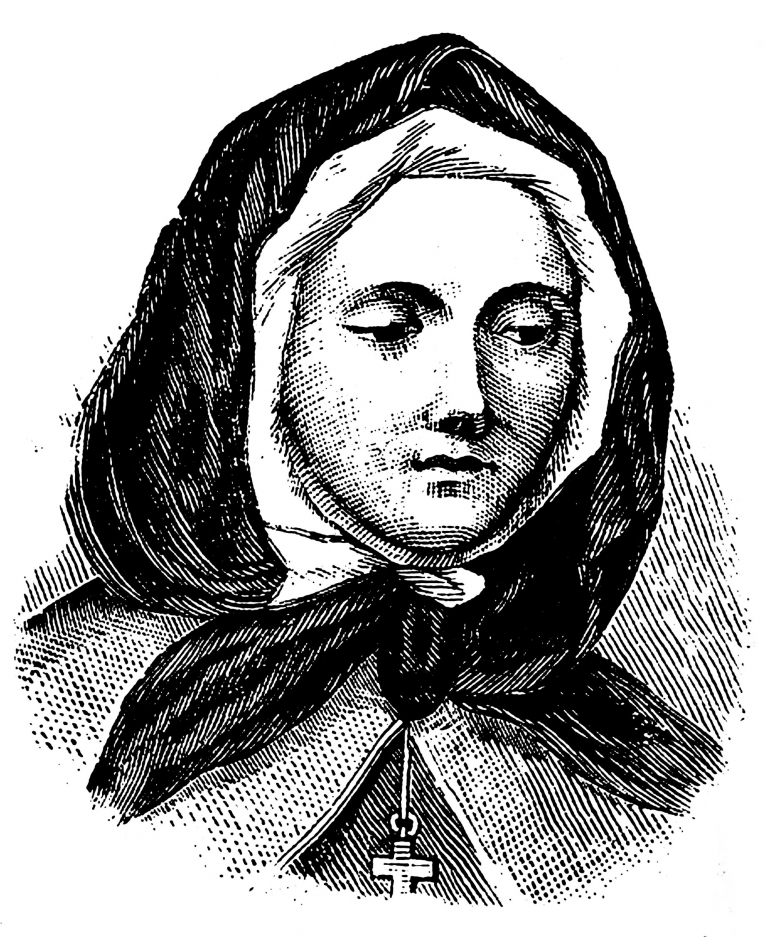Several women played a major role in the founding of Montréal. First, there was Jeanne Mance, who arrived with Paul Chomedey, Sieur de Maisonneuve, on May 18, 1642. She founded the Hôtel-Dieu, the first hospital in Ville-Marie. Then, in 1653, Marguerite Bourgeoys arrived to serve as the first teacher. She opened her school in a stable and welcomed all of the children of the first settlers and the First Nations people, boys and girls, rich and poor.
Marguerite Bourgeoys dreamed of founding a non-cloistered religious community, something that did not exist at that time. But, for her, that was the only way she could complete the mission she had taken on.
Looking for help to fulfill this vision, she returned to France to find other women who wanted to take part in this adventure. Catherine Crolo came back with her in 1659. This robust, energetic woman took charge of daily management. Her energy was proverbial. She initiated and supervised the clearing of the land and the planting of the first crops on the farm in the Point, as it was called then. She hired the first families that lived on the farm and helped the nuns grow crops and raise animals. She also welcomed the King’s Wards and introduced them to life here.
As a result of the revenue generated by the farm, Marguerite Bourgeoys obtained her letters patent from King Louis XIV in 1670. Marguerite Bourgeoys and Catherine Crolo both lived to a very old age for that time, namely the age of 80. Catherine Crolo passed away in 1699 and Marguerite Bourgeoys, in 1700.
Sharecroppers Nuns
Following that, over the centuries, 86 women managed the farm. They are called sharecroppers because they did not manage the farm for their own profit but for the benefit of their community.
They witnessed good years, with generous harvests, as well as wars, catastrophes and, finally, industrialization. During the course of the 19th century, the land was broken up into parcels and sold; the farm stopped its activities in 1960. Maison Saint-Gabriel became a museum in 1966... and it is still managed by women.


